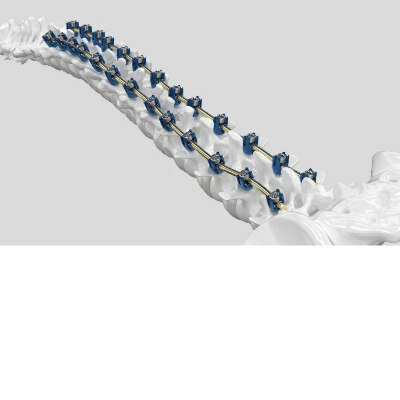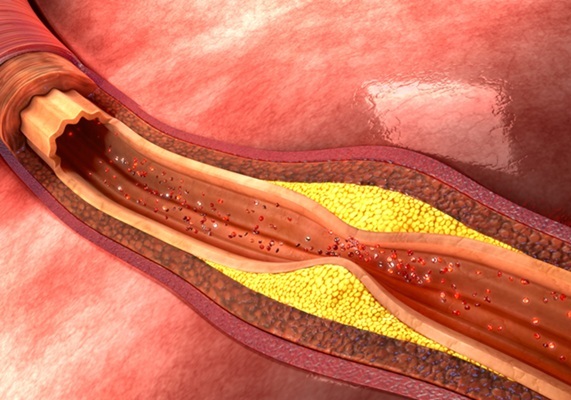Johnson & Johnson COVID-19 Vaccine Candidate Demonstrates Robust Protection in Pre-Clinical Studies
|
By HospiMedica International staff writers Posted on 31 Jul 2020 |
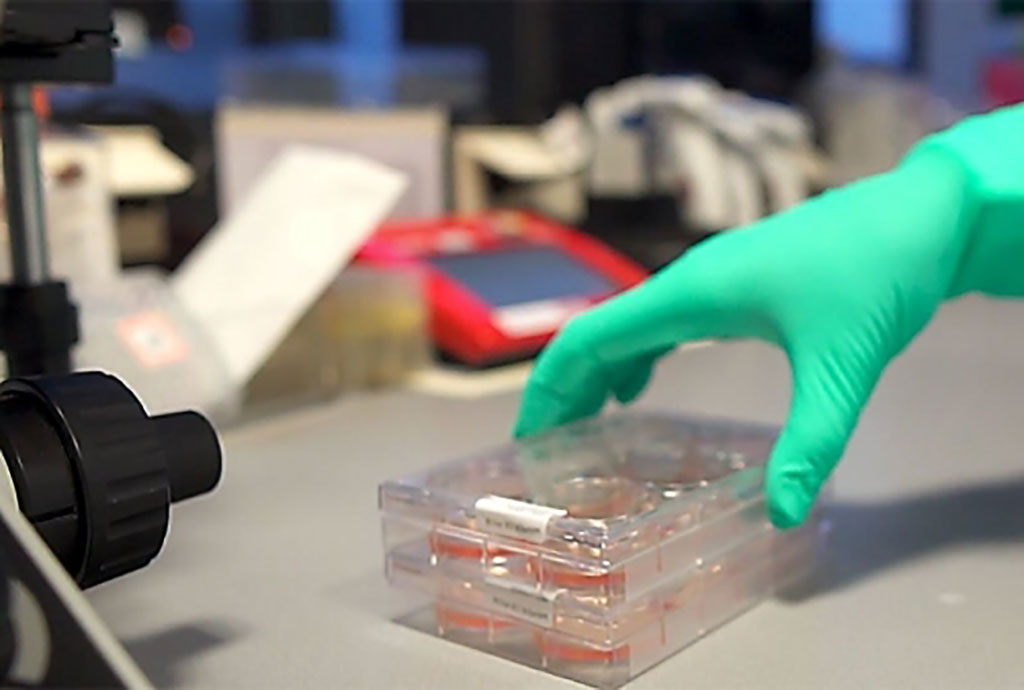
Image: Johnson & Johnson COVID-19 Vaccine Candidate Demonstrates Robust Protection in Pre-Clinical Studies (Photo courtesy of Johnson & Johnson)
Johnson & Johnson’s (New Brunswick, NJ, USA) lead vaccine candidate has successfully protected monkeys against infection with SARS-CoV-2, the virus that causes COVID-19, in pre-clinical studies.
The company’s investigational adenovirus serotype 26 (Ad26) vector-based vaccine elicited a robust immune response as demonstrated by “neutralizing antibodies,” successfully preventing subsequent infection and providing complete or near-complete protection in the lungs from the virus in non-human primates (NHPs) in the pre-clinical study. In the studies, the researchers first immunized the NHPs with a panel of vaccine prototypes, and then challenged them with SARS-CoV-2 infection. The scientists found that, of seven vaccine prototypes tested in the study, the vaccine candidate, Ad26.COV2.S, elicited the highest levels of neutralizing antibodies to SARS-CoV-2. The level of antibodies correlated with the level of protection, confirming previous observations and suggesting they could be a potential biomarker for vaccine-mediated protection. The six NHPs that received a single immunization with Ad26.COV2.S showed no detectable virus in the lower respiratory tract after exposure to SARS-CoV-2, and only one of six showed very low levels of the virus in a nasal swab at two time points. The pre-clinical studies were conducted by researchers from Beth Israel Deaconess Medical Center (BIDMC) in collaboration with the Janssen Pharmaceutical Companies of Johnson & Johnson and others as part of its ongoing collaboration to accelerate the development of a SARS-CoV-2 vaccine.
Based on the strength of the data, the company has now commenced a Phase 1/2a first-in-human clinical trial of Ad26.COV2.S in healthy volunteers, in the US and Belgium. The robust Janssen COVID-19 clinical trial program, including the Phase 1/2a clinical trial and the Phase 3 clinical trial program, will evaluate both one- and two-dose regimens of Ad26.COV2.S in parallel studies. The Phase 1/2a trial will evaluate the safety, reactogenicity (expected reactions to vaccination, such as swelling or soreness), and immunogenicity of Ad26.COV2.S in over 1,000 healthy adults aged 18 to 55 years, as well as adults aged 65 years and older. Planning also is underway for a Phase 2a study in the Netherlands, Spain and Germany and a Phase 1 study in Japan. As the company plans its COVID-19 Phase 3 clinical development program, discussions are underway with partners with the objective to start a pivotal Phase 3 clinical trial of the single vaccine dose versus placebo in September, pending the interim data of the Phase 1 and 2 trials and approval of regulators. Simultaneously, the company is also planning to start a parallel Phase 3 clinical trial of a two-dose regimen versus placebo.
“We are excited to see these pre-clinical data because they show our SARS-CoV-2 vaccine candidate generated a strong antibody response and provided protection with a single dose. The findings give us confidence as we progress our vaccine development and upscale manufacturing in parallel, having initiated a Phase 1/2a trial in July with the intention to move into a Phase 3 trial in September,” said Paul Stoffels, M.D., Vice Chairman of the Executive Committee and Chief Scientific Officer, Johnson & Johnson.
“The pre-clinical data, generated in collaboration with the Johnson & Johnson team, highlights the potential of this SARS-CoV-2 vaccine candidate. Moreover, the data suggest that antibody levels may serve as a biomarker for vaccine-mediated protection,” said Dan Barouch, M.D., Ph.D., Director of the Center for Virology and Vaccine Research at BIDMC and the Ragon Institute.
Related Links:
Johnson & Johnson
The company’s investigational adenovirus serotype 26 (Ad26) vector-based vaccine elicited a robust immune response as demonstrated by “neutralizing antibodies,” successfully preventing subsequent infection and providing complete or near-complete protection in the lungs from the virus in non-human primates (NHPs) in the pre-clinical study. In the studies, the researchers first immunized the NHPs with a panel of vaccine prototypes, and then challenged them with SARS-CoV-2 infection. The scientists found that, of seven vaccine prototypes tested in the study, the vaccine candidate, Ad26.COV2.S, elicited the highest levels of neutralizing antibodies to SARS-CoV-2. The level of antibodies correlated with the level of protection, confirming previous observations and suggesting they could be a potential biomarker for vaccine-mediated protection. The six NHPs that received a single immunization with Ad26.COV2.S showed no detectable virus in the lower respiratory tract after exposure to SARS-CoV-2, and only one of six showed very low levels of the virus in a nasal swab at two time points. The pre-clinical studies were conducted by researchers from Beth Israel Deaconess Medical Center (BIDMC) in collaboration with the Janssen Pharmaceutical Companies of Johnson & Johnson and others as part of its ongoing collaboration to accelerate the development of a SARS-CoV-2 vaccine.
Based on the strength of the data, the company has now commenced a Phase 1/2a first-in-human clinical trial of Ad26.COV2.S in healthy volunteers, in the US and Belgium. The robust Janssen COVID-19 clinical trial program, including the Phase 1/2a clinical trial and the Phase 3 clinical trial program, will evaluate both one- and two-dose regimens of Ad26.COV2.S in parallel studies. The Phase 1/2a trial will evaluate the safety, reactogenicity (expected reactions to vaccination, such as swelling or soreness), and immunogenicity of Ad26.COV2.S in over 1,000 healthy adults aged 18 to 55 years, as well as adults aged 65 years and older. Planning also is underway for a Phase 2a study in the Netherlands, Spain and Germany and a Phase 1 study in Japan. As the company plans its COVID-19 Phase 3 clinical development program, discussions are underway with partners with the objective to start a pivotal Phase 3 clinical trial of the single vaccine dose versus placebo in September, pending the interim data of the Phase 1 and 2 trials and approval of regulators. Simultaneously, the company is also planning to start a parallel Phase 3 clinical trial of a two-dose regimen versus placebo.
“We are excited to see these pre-clinical data because they show our SARS-CoV-2 vaccine candidate generated a strong antibody response and provided protection with a single dose. The findings give us confidence as we progress our vaccine development and upscale manufacturing in parallel, having initiated a Phase 1/2a trial in July with the intention to move into a Phase 3 trial in September,” said Paul Stoffels, M.D., Vice Chairman of the Executive Committee and Chief Scientific Officer, Johnson & Johnson.
“The pre-clinical data, generated in collaboration with the Johnson & Johnson team, highlights the potential of this SARS-CoV-2 vaccine candidate. Moreover, the data suggest that antibody levels may serve as a biomarker for vaccine-mediated protection,” said Dan Barouch, M.D., Ph.D., Director of the Center for Virology and Vaccine Research at BIDMC and the Ragon Institute.
Related Links:
Johnson & Johnson
Latest COVID-19 News
- Low-Cost System Detects SARS-CoV-2 Virus in Hospital Air Using High-Tech Bubbles
- World's First Inhalable COVID-19 Vaccine Approved in China
- COVID-19 Vaccine Patch Fights SARS-CoV-2 Variants Better than Needles
- Blood Viscosity Testing Can Predict Risk of Death in Hospitalized COVID-19 Patients
- ‘Covid Computer’ Uses AI to Detect COVID-19 from Chest CT Scans
- MRI Lung-Imaging Technique Shows Cause of Long-COVID Symptoms
- Chest CT Scans of COVID-19 Patients Could Help Distinguish Between SARS-CoV-2 Variants
- Specialized MRI Detects Lung Abnormalities in Non-Hospitalized Long COVID Patients
- AI Algorithm Identifies Hospitalized Patients at Highest Risk of Dying From COVID-19
- Sweat Sensor Detects Key Biomarkers That Provide Early Warning of COVID-19 and Flu
- Study Assesses Impact of COVID-19 on Ventilation/Perfusion Scintigraphy
- CT Imaging Study Finds Vaccination Reduces Risk of COVID-19 Associated Pulmonary Embolism
- Third Day in Hospital a ‘Tipping Point’ in Severity of COVID-19 Pneumonia
- Longer Interval Between COVID-19 Vaccines Generates Up to Nine Times as Many Antibodies
- AI Model for Monitoring COVID-19 Predicts Mortality Within First 30 Days of Admission
- AI Predicts COVID Prognosis at Near-Expert Level Based Off CT Scans
Channels
Critical Care
view channel
AI Model Analyzes Patient Data to Diagnose Multiple Sclerosis With 90% Accuracy
Multiple sclerosis (MS) is a chronic inflammatory condition affecting the central nervous system. Most patients initially experience the relapsing-remitting form (RRMS), characterized by periods of symptom... Read more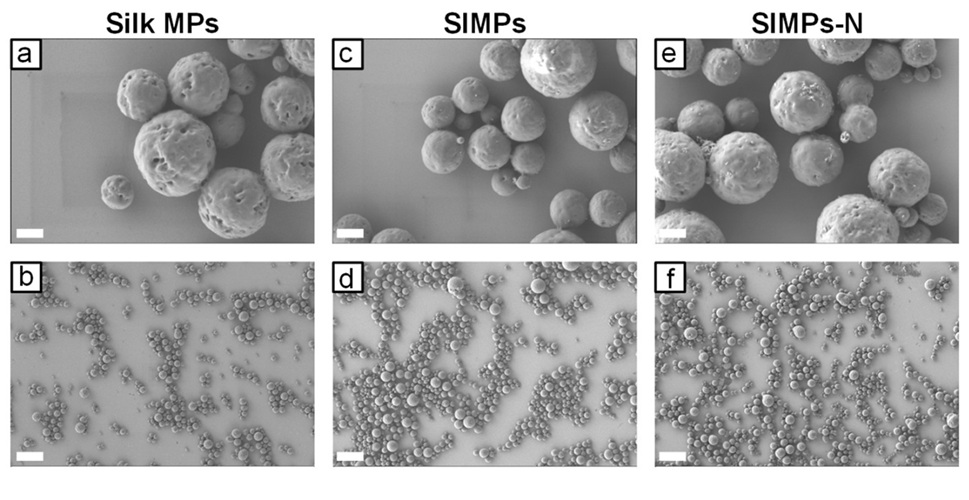
Magnetically Navigable Microparticles Enable Targeted Drug Delivery
Abdominal aortic aneurysms (AAA) can be life-threatening if not treated and result in nearly 10,000 deaths annually. Researchers working to improve treatments for AAA could now make it possible for doctors... Read more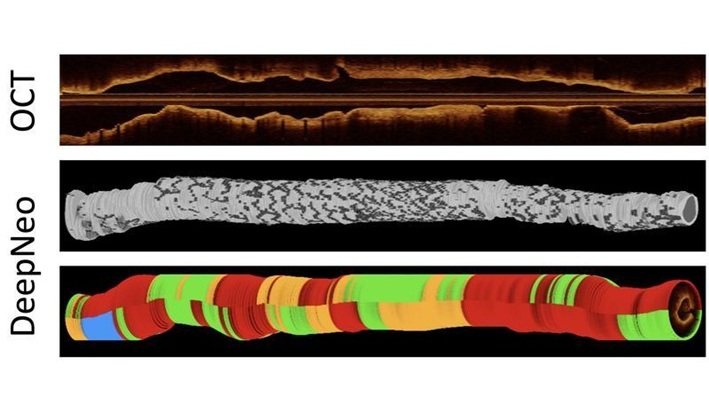
AI-Powered Algorithm Automates Analysis of Coronary Stents After Implantation
Every year, over three million people globally receive stents to open blocked blood vessels caused by heart disease. However, monitoring the healing process after stent implantation remains a significant challenge.... Read moreSurgical Techniques
view channel
DNA Origami Improves Imaging of Dense Pancreatic Tissue for Cancer Detection and Treatment
One of the challenges of fighting pancreatic cancer is finding ways to penetrate the organ’s dense tissue to define the margins between malignant and normal tissue. Now, a new study uses DNA origami structures... Read more
Pioneering Sutureless Coronary Bypass Technology to Eliminate Open-Chest Procedures
In patients with coronary artery disease, certain blood vessels may be narrowed or blocked, requiring a stent or a bypass (also known as diversion) to restore blood flow to the heart. Bypass surgeries... Read more
Intravascular Imaging for Guiding Stent Implantation Ensures Safer Stenting Procedures
Patients diagnosed with coronary artery disease, which is caused by plaque accumulation within the arteries leading to chest pain, shortness of breath, and potential heart attacks, frequently undergo percutaneous... Read more
World's First AI Surgical Guidance Platform Allows Surgeons to Measure Success in Real-Time
Surgeons have always faced challenges in measuring their progress toward surgical goals during procedures. Traditionally, obtaining measurements required stepping out of the sterile environment to perform... Read morePatient Care
view channel
Portable Biosensor Platform to Reduce Hospital-Acquired Infections
Approximately 4 million patients in the European Union acquire healthcare-associated infections (HAIs) or nosocomial infections each year, with around 37,000 deaths directly resulting from these infections,... Read moreFirst-Of-Its-Kind Portable Germicidal Light Technology Disinfects High-Touch Clinical Surfaces in Seconds
Reducing healthcare-acquired infections (HAIs) remains a pressing issue within global healthcare systems. In the United States alone, 1.7 million patients contract HAIs annually, leading to approximately... Read more
Surgical Capacity Optimization Solution Helps Hospitals Boost OR Utilization
An innovative solution has the capability to transform surgical capacity utilization by targeting the root cause of surgical block time inefficiencies. Fujitsu Limited’s (Tokyo, Japan) Surgical Capacity... Read more
Game-Changing Innovation in Surgical Instrument Sterilization Significantly Improves OR Throughput
A groundbreaking innovation enables hospitals to significantly improve instrument processing time and throughput in operating rooms (ORs) and sterile processing departments. Turbett Surgical, Inc.... Read moreHealth IT
view channel
Printable Molecule-Selective Nanoparticles Enable Mass Production of Wearable Biosensors
The future of medicine is likely to focus on the personalization of healthcare—understanding exactly what an individual requires and delivering the appropriate combination of nutrients, metabolites, and... Read more
Smartwatches Could Detect Congestive Heart Failure
Diagnosing congestive heart failure (CHF) typically requires expensive and time-consuming imaging techniques like echocardiography, also known as cardiac ultrasound. Previously, detecting CHF by analyzing... Read moreBusiness
view channel
Expanded Collaboration to Transform OR Technology Through AI and Automation
The expansion of an existing collaboration between three leading companies aims to develop artificial intelligence (AI)-driven solutions for smart operating rooms with sophisticated monitoring and automation.... Read more









